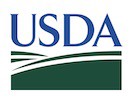Effective immediately, the United States Department of Agriculture's Animal and Plant Health Inspection Service (APHIS) is amending entry requirements for the importation of boxwood (Buxus spp.), Euonymus (Euonymus spp.), and holly (Ilex spp.) plants for planting from Canada to prevent the introduction of box tree moth (Cydalima perspectalis) into the United States. APHIS is taking this action in response to the detection of the pest at a nursery in St. Catharines, Ontario. APHIS considers propagative hosts a high-risk pathway for the introduction of a box tree moth.
Box tree moth is a serious pest of boxwood, Euonymus, holly, and curry leaf tree (Murraya spp.) species, which are pathways for entry of the box tree moth into the United States. Box tree moth symptoms include green-black frass and silk threads on the host plant. Larvae feeding on leaves and bark can lead to the death of the plants.
Currently, the importation of all propagative plant material, except seeds, of certain hosts of box tree moth are Not Authorized Pending Pest Risk Analysis (NAPPRA). Boxwood is NAPPRA from all countries except Canada. Holly is NAPPRA from all countries except Canada and the Netherlands. Euonymus is NAPPRA from Europe and must be subjected to post-entry quarantine requirements from all other countries except Canada and Japan. Curry leaf tree is NAPPRA from all countries. Prior to this Federal Order, shipments from Canada were required to be accompanied by a phytosanitary certificate and an additional declaration stating the shipment has been officially inspected and found to be free of box tree moth or produced in a facility or area officially recognized by Canadian Food Inspection Agency as free of box tree moth as per Federal Order DA 2020-07.
 U.S. Department of Agriculture
U.S. Department of Agriculture+1 202 720 2791
narasimha.c.samboju@usda.gov
www.usda.gov
